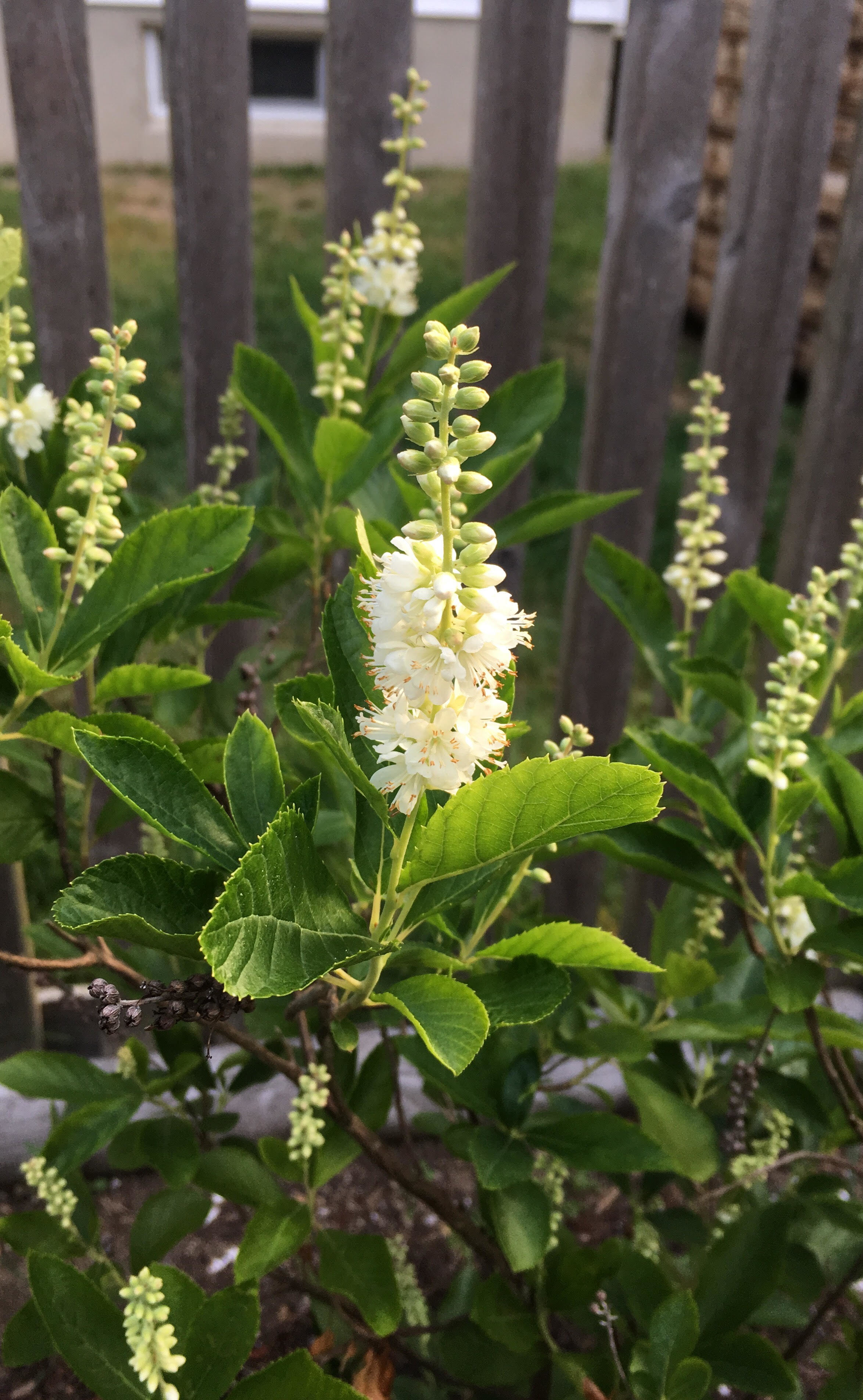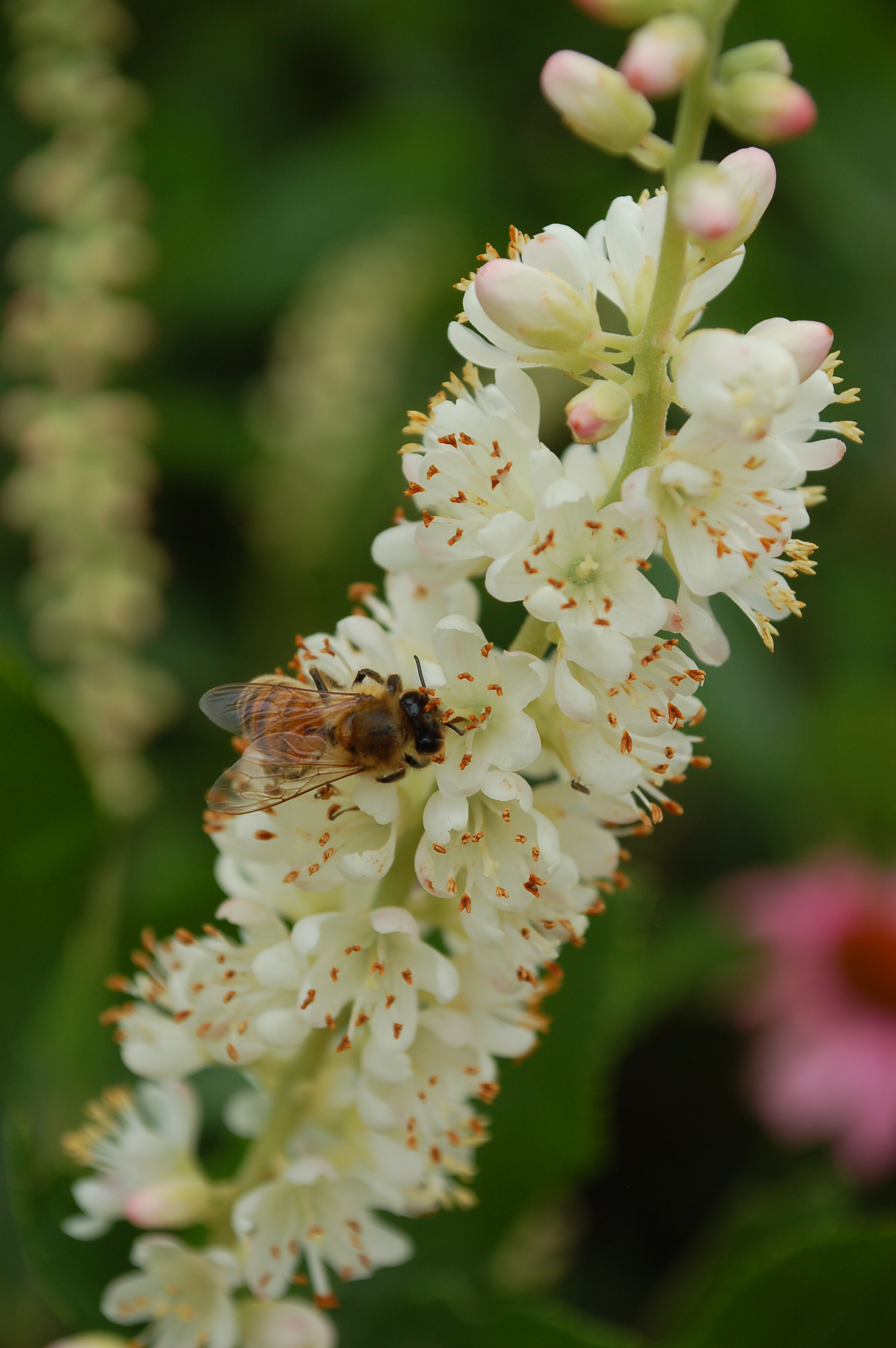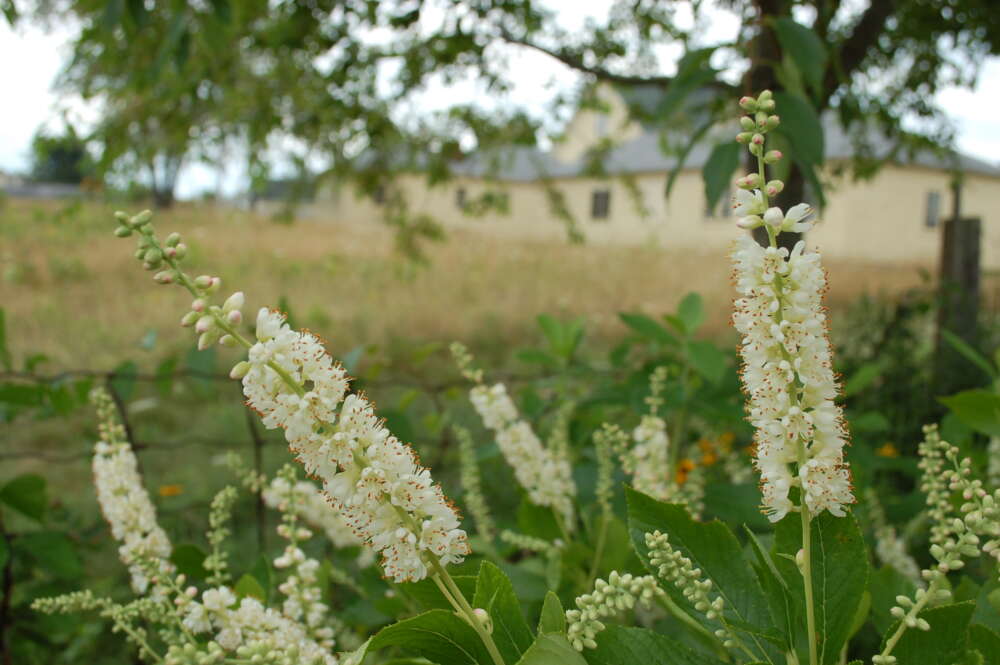The Wrack
The Wrack is the Wells Reserve blog, our collective logbook on the web.
The Wrack is the Wells Reserve blog, our collective logbook on the web.

If I had to pick one plant for my garden, I would choose Clethra alnifolia, eastern sweet pepperbush. For ease of growing, appearance throughout the season, toughness, and pollinator attraction, it's hard to top. Whether planted in shade or sun, dry soil or wet — you name it — clethra is happy. I moved an established plant in my home garden in the middle of last summer’s drought, gave it a light canopy and regular water, and it showed no signs of distress. Now that’s one tough cookie.
Clethra is a Maine native found growing in swampy woodlands, wet marshes, stream banks, and seashores. It sends up white, fragrant, conical blooms that open from the bottom up in the mid to late summer lull. In his book Native Trees, Shrubs, and Vines, Bill Cullina likens the bloom to a narrow, pointed Gothic steeple and says “Clethra in bloom is almost overwhelming in a giddy, nose tingling sense.” Judging by their numbers at my plants, insects feel the same way. Clethra is always buzzing with bees, wasps, flies, butterflies, and hummingbirds.

On the other hand, queen and worker honeybees and bumblebees can give nasty stings. For some, a bee sting can be life threatening so precautions must be taken. The best advice to avoid being stung is to stay out of the bee’s way. Observe where the bees are coming from and where they are going. Look at a flower before smelling it, and if walking in bare feet on your lawn, look down. And don’t reach your hand inside a sweet pepperbush as I did — for what reason I can’t recall, but it was not a smart one. Yes, I was stung.
There is great value in providing nectar and pollen for the organisms that pollinate our wildflowers, agricultural crops, fruit orchards, and backyard vegetable and flower gardens. Bees are essential for sustaining our forests, fields, meadows, pastures, and roadsides. Without them, life on earth would be in peril. So plant clethra in your garden. You won’t be disappointed.
Clethra is derived from the Greek klethra, meaning alder, and alnifolia means alder-leaved. It looks like an alder, but it’s not. Eastern sweet pepperbush is also known as summersweet.
